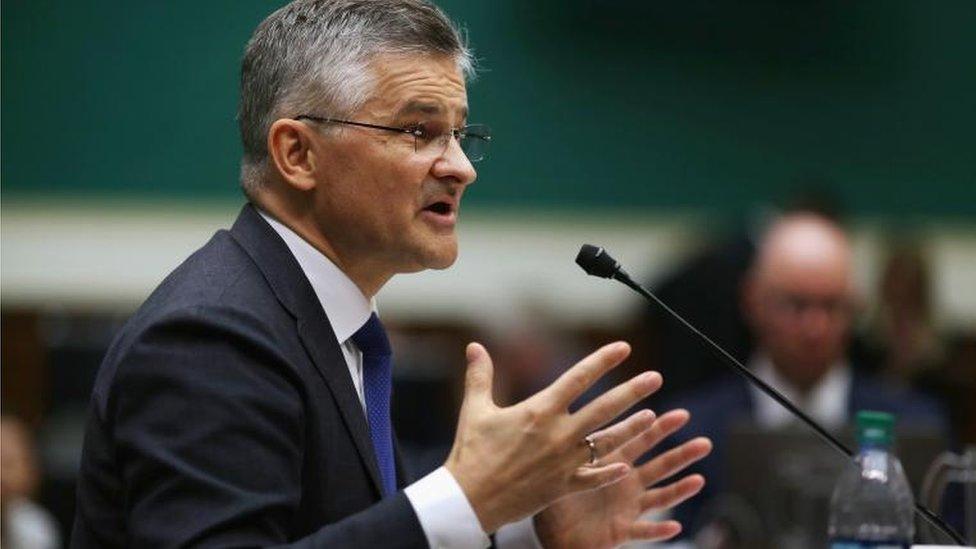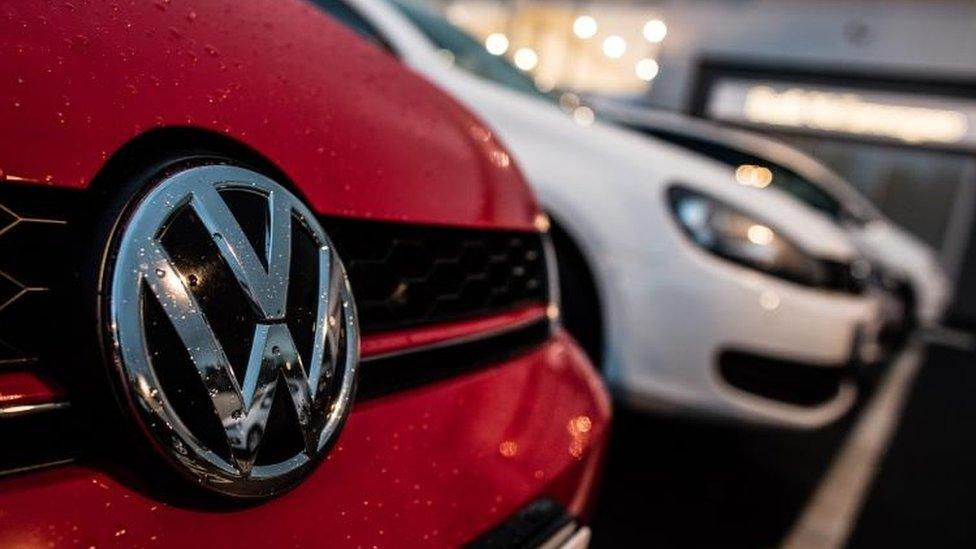American lessons for VW in Britain
- Published
- comments

VW's US boss Michael Horn gave evidence for two hours to US lawmakers
Apart from the fact that an inordinate number of House of Representatives energy committee members had a VW as their first car, what else did we learn from yesterday's hearing into the emissions scandal that has so undermined the world's second largest vehicle maker?
A considerable amount, as it turns out - and each lesson is important ahead of VW Britain's first public appearance next week to account for the deliberate manipulation of vital environmental and health tests.
Paul Willis, the UK managing director of VW UK, will appear before the Transport Select Committee in Parliament on Monday.
He will then appear before the Environmental Audit Committee on Thursday.
It is to be hoped that the MPs on both ensure that Mr Willis is as revealing as his counter-part in America.
Michael Horn, the chief executive of VW US, gave evidence for two hours yesterday. He made some major admissions that Mr Willis should be pressed on.
First, Mr Horn appears to have been kept wholly in the dark about the "defeat device" that was secreted into VW's 2.0 litre diesel engine to make it appear less polluting than it actually was.
After rumours that VW's American arm could have been behind the software code change, Mr Horn's testimony throws the focus squarely on Wolfsburg, VW's German headquarters.
And this raises serious questions about an internal culture at VW that appears to have allowed an engineering department in Germany to operate in secret and outside the control of the business.
The question now is, did senior executives deliberately turn a blind eye?
Mr Horn said that his own company in Germany deceived him, after failing to admit that the "cheat" was the reason there was such a discrepancy between laboratory tests and on-the-road performance.

One question that was left hanging was why Mr Horn did not inquire further about why - when driven in the real world - VW's cars were pumping out up to 40 times more nitrogen dioxide than the laboratory tests suggested.
The second big lesson from yesterday came when Mr Horn laid the blame for VW's actions on "pressure in the system to get resolutions and also cost pressure" - a key issue (why did they do this?) which Mr Willis should be pressed on and asked whether he agrees.
"It is wrong to put corporate profits before people," Mr Horn said, saying the software change was down to a "couple of engineers".
Members of the energy committee - when they had stopped boasting about their first VW car - said that the "couple of engineers" defence stretched credulity.
It was an opinion Mr Horn seemed to agree with.
"I agree it's very hard to believe," he said. "Personally I struggle as well."
Mr Horn said that fixing the emissions problem on its cars in America could take "1-2 years" and each car could take between five and 10 hours to upgrade.
Mr Willis needs to be crystal clear about the impact of the emissions scandal on the 1.2 million cars and vans that VW has said could have contained the device in the UK.
Customers here are still in the dark about whether their cars are polluting the environment more than is necessary.
And what the impact of any "fixes" might be on the performance and value of the car they bought on trust.
It is to be hoped that Mr Willis is as forthcoming about VW's woes as Mr Horn was.
Though I'm not sure an understanding of the VW buying habits of MPs will be wholly necessary.